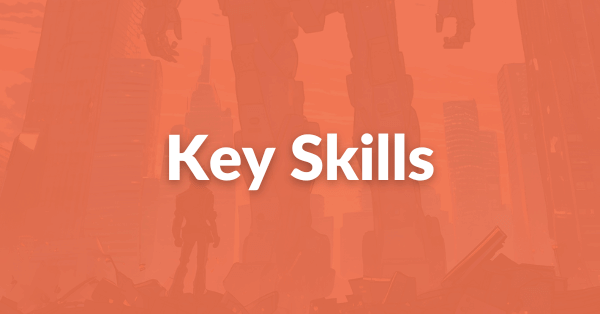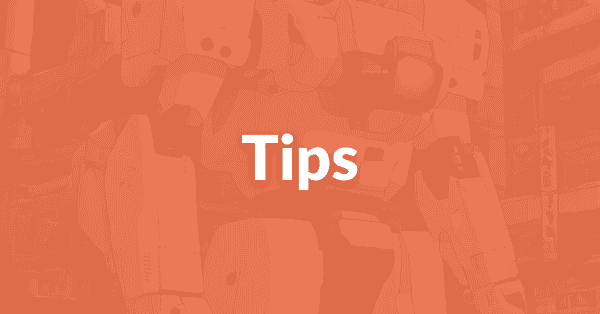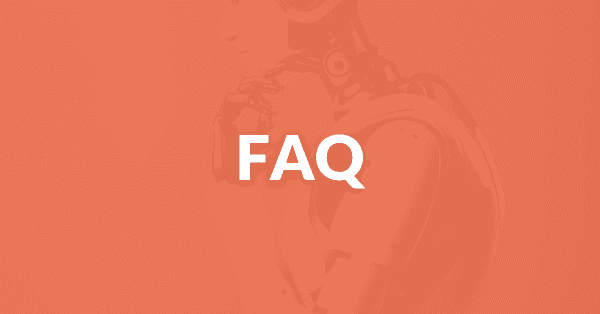Robotics Jobs in Japan: What you need to know
Universal truths:
What do these mean for you?
It’s an exciting market for robotics engineers!
This guide provides a comprehensive overview of robotics in Japan and how to navigate the job market.
Industry Overview
Japan’s robotics industry is one of the most advanced in the world.
Sectors include industrial automation, healthcare, and service robotics.
Japanese companies like FANUC, Yaskawa, and Kawasaki Robotics have been at the forefront of developing industrial robots used in manufacturing, while companies like SoftBank Robotics have gained global recognition with consumer-facing robots like Pepper.
This is driven by the need for solutions to labor shortages due to the country’s aging population, as well as the ongoing demand for high-quality manufacturing.
From robots designed to assist in healthcare settings to robots used in smart factories, the demand for robotic engineers has never been higher.
In-Demand Roles in Japan’s Robotics Industry
Robotics Engineers: These professionals are responsible for designing, building, and maintaining robotic systems. Proficiency in robotic software platforms like ROS (Robot Operating System), as well as experience in hardware development, is essential.
AI and Machine Learning Specialists: AI is a critical component of modern robotics, enabling robots to learn and adapt to new environments. Specialists in machine learning and AI help robots develop advanced capabilities like object recognition and decision-making.
Embedded Systems Engineers: Robotics relies heavily on embedded systems for control and communication. Engineers with experience in microcontrollers, real-time operating systems, and low-level programming are in high demand.
Mechanical and Electrical Engineers: These engineers design and implement the hardware components of robots, such as sensors, actuators, and control systems. Strong skills in CAD software and circuit design are essential.
Software Engineers (Robotics): Developing the control software that drives robots requires expertise in languages like C++, Python, and Java, as well as experience with simulation tools and robotics-specific frameworks like ROS.
Automation Engineers: Automation is key in industries like manufacturing and logistics. Engineers who specialize in automating processes using robotics, PLC (Programmable Logic Controller) programming, and industrial robot arms are highly valued.
Product Managers (Robotics): These professionals manage the development and commercialization of robotic solutions, working closely with engineers, designers, and business teams to bring robotic products to market.
Key Skills
Programming: Proficiency in languages like C++, Python, and Java is essential for developing robot control software. Experience with ROS (Robot Operating System) is highly valued in Japan’s robotics industry.
AI and Machine Learning: Understanding machine learning algorithms and how they are applied to robotics is increasingly important. This includes expertise in neural networks, computer vision, and natural language processing (NLP).
Hardware Development: Mechanical and electrical engineering skills are vital for designing and building robot components. Experience with CAD software, circuit design, and sensors will be crucial in roles that focus on robotics hardware.
Robotics Simulation: Familiarity with simulation tools like Gazebo or V-REP are beneficial, as these tools allow engineers to test and fine-tune robot behavior before deployment.
Automation and Control Systems: For roles focused on industrial automation, knowledge of PLC programming, sensor integration, and control systems is essential.
Certifications
In terms of certifications, pursuing industry-specific credentials like the FANUC Certified Robot Engineer or ABB Robotics Certification enhances your job prospects.
Obtaining certifications in AI and machine learning from platforms like Coursera or edX will strengthen your profile for AI-driven robotics roles.
Language Requirements
Japanese language proficiency is important for most roles in Japan’s robotics industry in positions that involve close collaboration with local teams, suppliers, or customers.
While technical roles at international companies are more flexible with language requirements, having at least at the N2 level of the JLPT, is necessary for smoother communication.
Global robotics companies and research institutions offer opportunities for English-speaking professionals to take on highly specialized technical roles.
Even in these roles, Understanding Japanese business etiquette and adapting to the local work culture is crucial for long-term success.
Challenges for International Candidates
For international candidates, entering Japan’s robotics industry presents challenges.
Language barriers and a deep understanding of Japan’s approach to engineering and robotics development are important factors.
Robotics development in Japan often focuses on high-precision manufacturing and human-assistive technologies, so familiarizing yourself with Japan’s specific demands and trends will give you a competitive edge.
To prepare, build a strong portfolio of robotics projects, whether through personal projects, open-source contributions, or internships.
Demonstrating hands-on experience with robotic systems, programming, or AI algorithms will make your application stand out.
For those who want to collaborate directly with Japanese teams, learning the language and obtaining a JLPT certification is highly recommended.
Salaries in Japan’s Robotics Industry
Salaries in Japan’s robotics industry vary depending on the role, experience, and the company’s size.
Entry-level engineers or software developer salaries start at around ¥4 million to ¥6 million annually.
Experienced engineers in specialized fields like AI or embedded systems earn between ¥7 million and ¥12 million or more.
Robotics professionals working for international companies or research institutions may receive more competitive compensation packages, especially for senior roles or leadership positions. Engineers with expertise in AI-driven robotics, advanced automation, or medical robotics are likely to command higher salaries.
Trends in Japan’s Robotics Industry
Service and Personal Robotics: With Japan’s aging population, there’s a growing demand for service robots that assist with caregiving, housekeeping, and healthcare tasks. Robots designed to work in homes, hospitals, and elderly care facilities are becoming increasingly popular.
Collaborative Robots (Cobots): Cobots are designed to work alongside humans, often in manufacturing environments. These robots are smaller, safer, and more flexible than traditional industrial robots, and they are becoming essential for automating tasks without replacing human workers entirely.
AI-Driven Robotics: AI is playing a growing role in enabling robots to learn and adapt in real-time. Machine learning algorithms help robots navigate complex environments, interact with humans, and perform tasks autonomously.
Autonomous Vehicles and Drones: Robotics extends beyond traditional robots to include autonomous vehicles and drones. Japan is investing heavily in these technologies for applications in logistics, agriculture, and public safety.
Smart Factories: Japan is a leader in smart manufacturing, where factories use IoT, AI, and robotics to automate production lines and optimize efficiency. Engineers who specialize in developing smart factory solutions are in high demand.
Debunking Common Misconceptions
One common misconception about Japan’s robotics industry is that it’s solely focused on industrial robots used in manufacturing. While Japan is a global leader in industrial automation, the robotics industry is much broader and includes significant work in healthcare, service robots, and AI-powered consumer robots.
Another misconception is that Japan’s robotics industry is closed off to foreign talent. While Japanese language proficiency is often required, there are plenty of opportunities for international professionals in technical or research-oriented roles at international companies or universities.
Tips for Landing a Job in Japan’s Robotics Industry
Here are a few steps to help you succeed in Japan’s robotics industry:
Master Robotics Programming: Proficiency in C++, Python, and ROS is essential for most robotics roles. Building and maintaining robots require a deep understanding of programming, algorithms, and hardware integration.
Gain Experience with AI and Machine Learning: AI is increasingly important in robotics. Work on projects that apply AI to robotics, such as computer vision, autonomous navigation, or human-robot interaction.
Learn Japanese: For most roles in Japan’s robotics industry, learning Japanese is crucial. Consider studying for the JLPT, ideally at the N2 level, to improve your communication skills and job prospects.
Stay Updated on Industry Trends: The robotics field evolves rapidly. Stay informed about emerging technologies like cobots, service robots, and AI-driven automation to ensure you’re ahead of the curve when applying for jobs.
Network in the Robotics Space: Attend robotics events, conferences, and expos in Japan to connect with professionals in the field. Building relationships with industry insiders will open doors to new opportunities.
FAQ: Frequently Asked Questions About Robotics Jobs in Japan
1. Do I need to be fluent in Japanese to work in Japan’s robotics industry?
Japanese proficiency is important for most roles, especially when working with local teams or customers. However, some international companies and research institutions may offer positions where English is the primary language. For technical roles, fluency in Japanese is not always necessary, but conversational skills (N2 level or higher) will help you collaborate effectively with colleagues.
2. What are the most important programming languages for robotics jobs in Japan?
C++, Python, and Java are the most commonly used programming languages in robotics. Experience with ROS (Robot Operating System) is highly valued, as it is widely used in the development of robotic systems.
3. How can I prepare to work in Japan’s robotics industry as an international candidate?
Build a strong portfolio of robotics projects, earn certifications relevant to the field (such as AI, machine learning, or robot engineering certifications), and, if possible, learn Japanese to improve your communication with local teams. Understanding Japan’s specific approach to robotics, particularly in areas like high-precision manufacturing and service robotics, will also help you stand out.
4. What is the typical salary range for robotics engineers in Japan?
Entry-level salaries for robotics engineers typically range from ¥4 million to ¥6 million annually, while experienced engineers with specialized skills (such as AI, embedded systems, or automation) can earn between ¥7 million and ¥12 million or more, depending on the company and the role.
5. Are there opportunities for non-Japanese speakers in Japan’s robotics industry?
Yes, there are opportunities for non-Japanese speakers, especially in technical roles or with international companies. However, language skills are still highly valued, and most companies prefer candidates who can communicate in Japanese, particularly in collaborative roles.
6. What industries are robotics professionals most likely to work in Japan?
Robotics professionals in Japan commonly work in industries like manufacturing (industrial robots), healthcare (service robots), logistics (automation and autonomous vehicles), and consumer electronics (AI-powered robots). There are also growing opportunities in research and development for smart factories, cobots, and AI-driven robotics.











